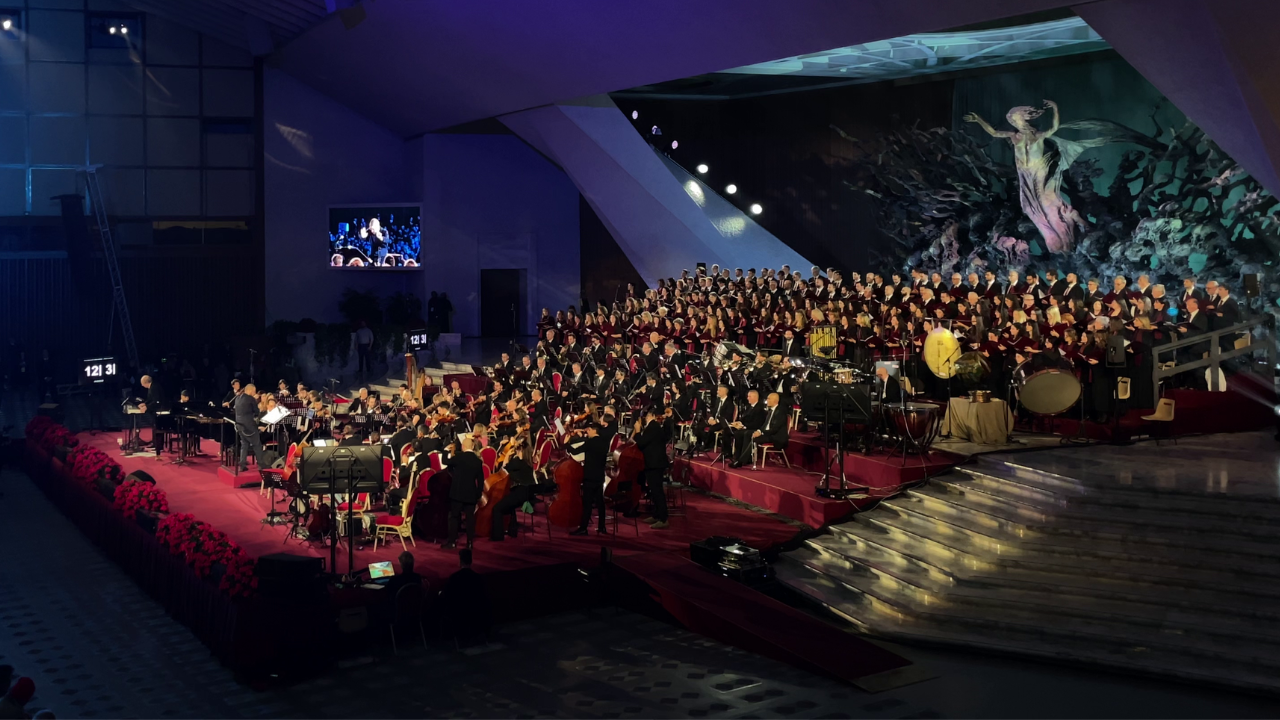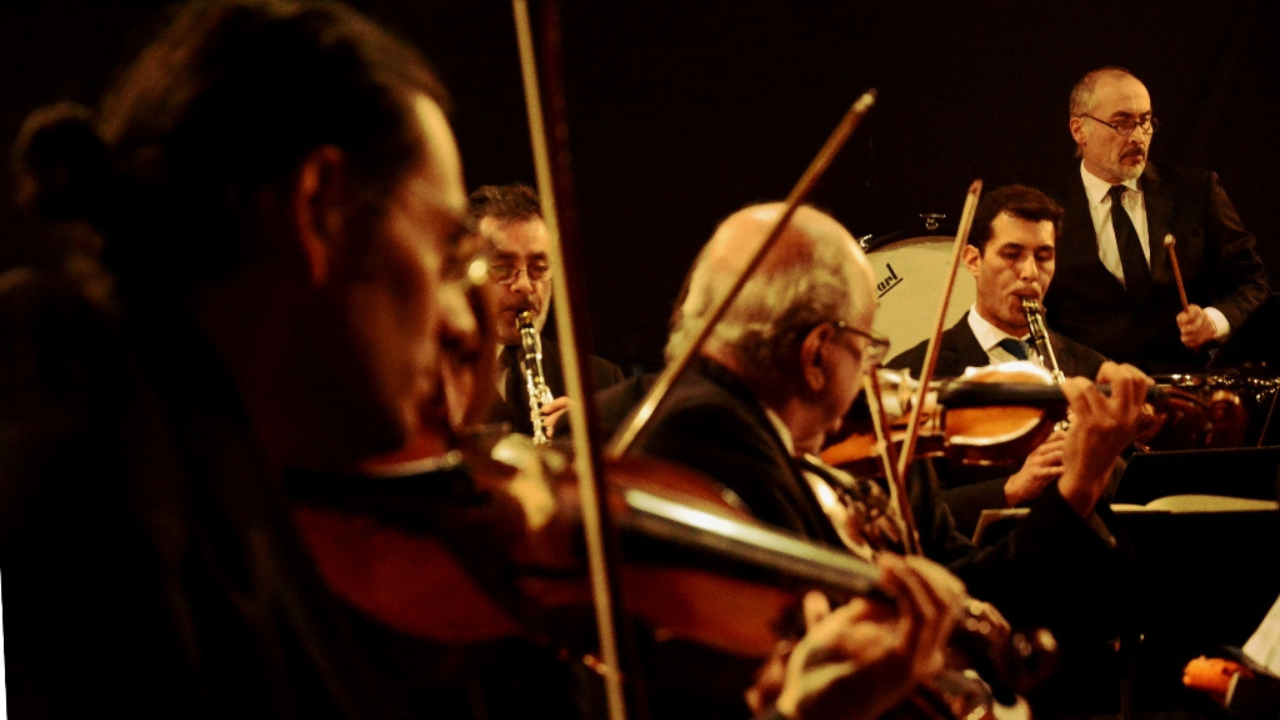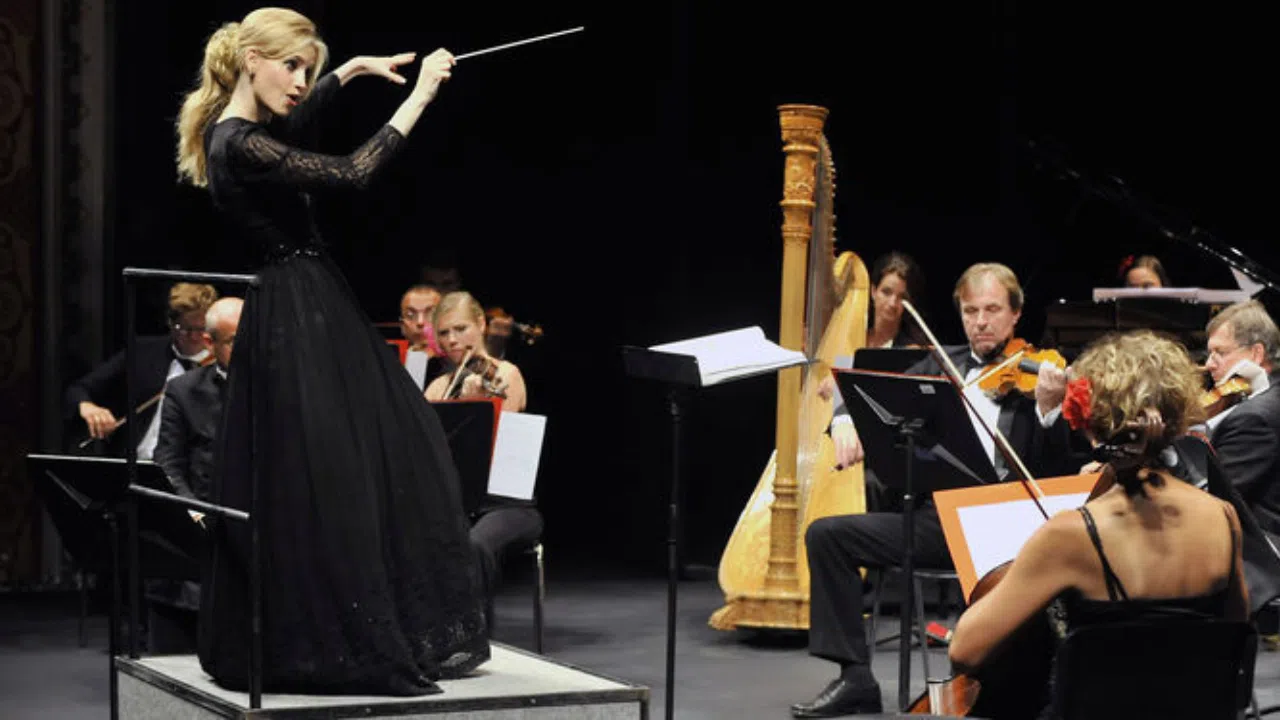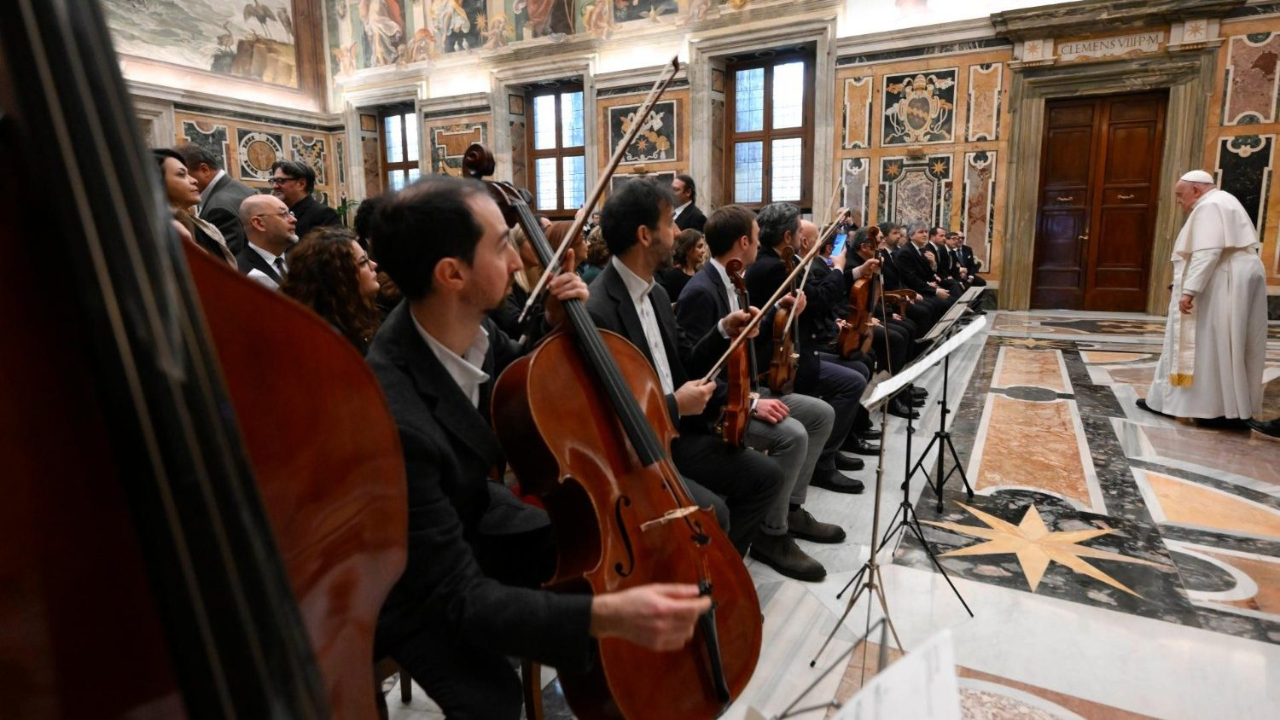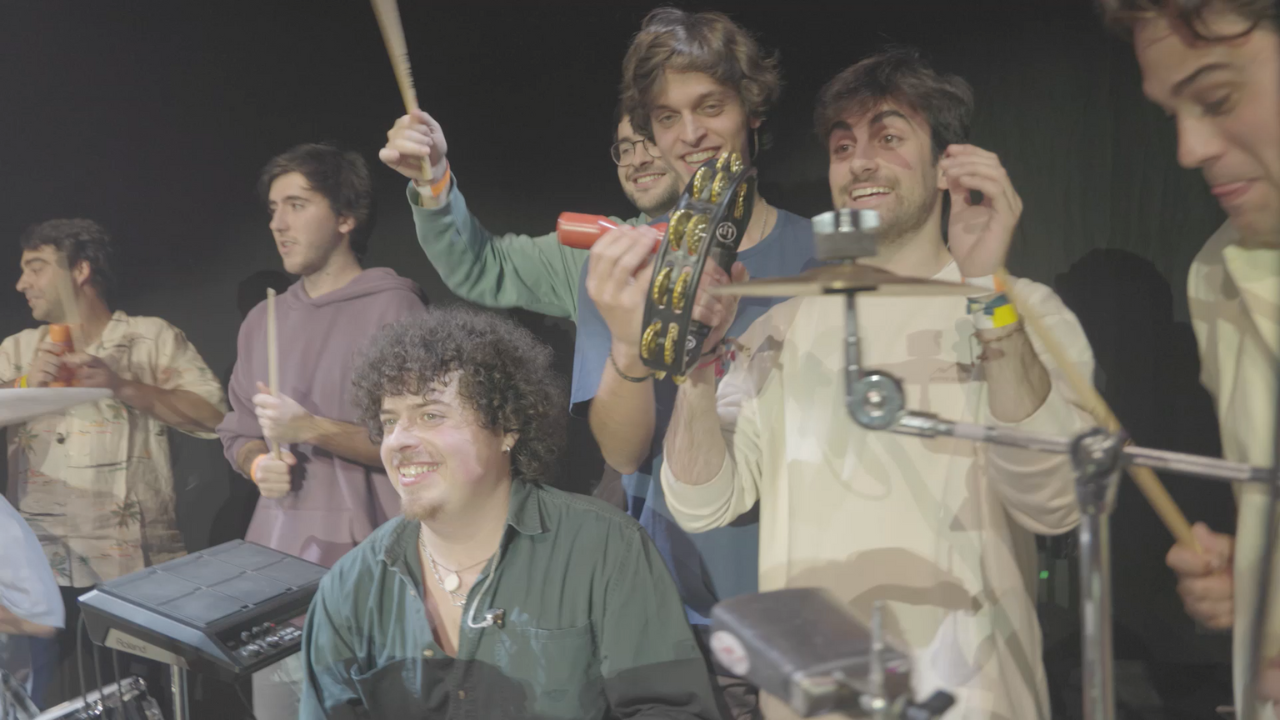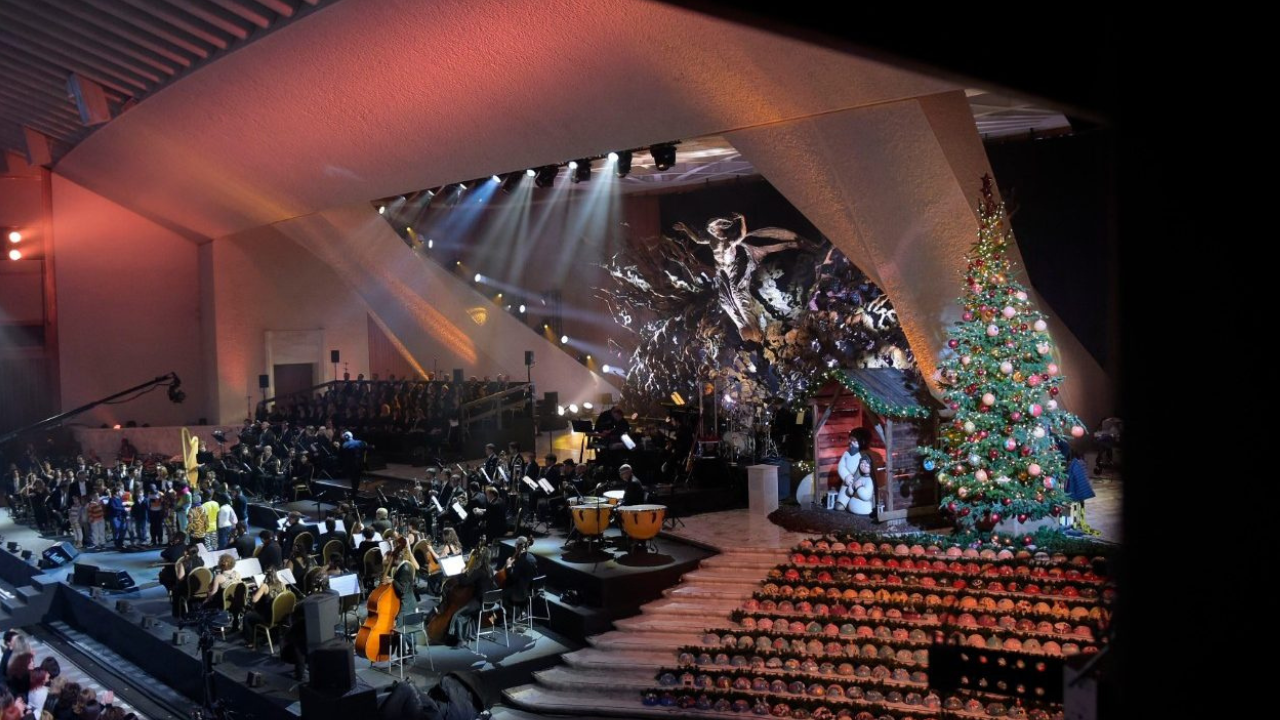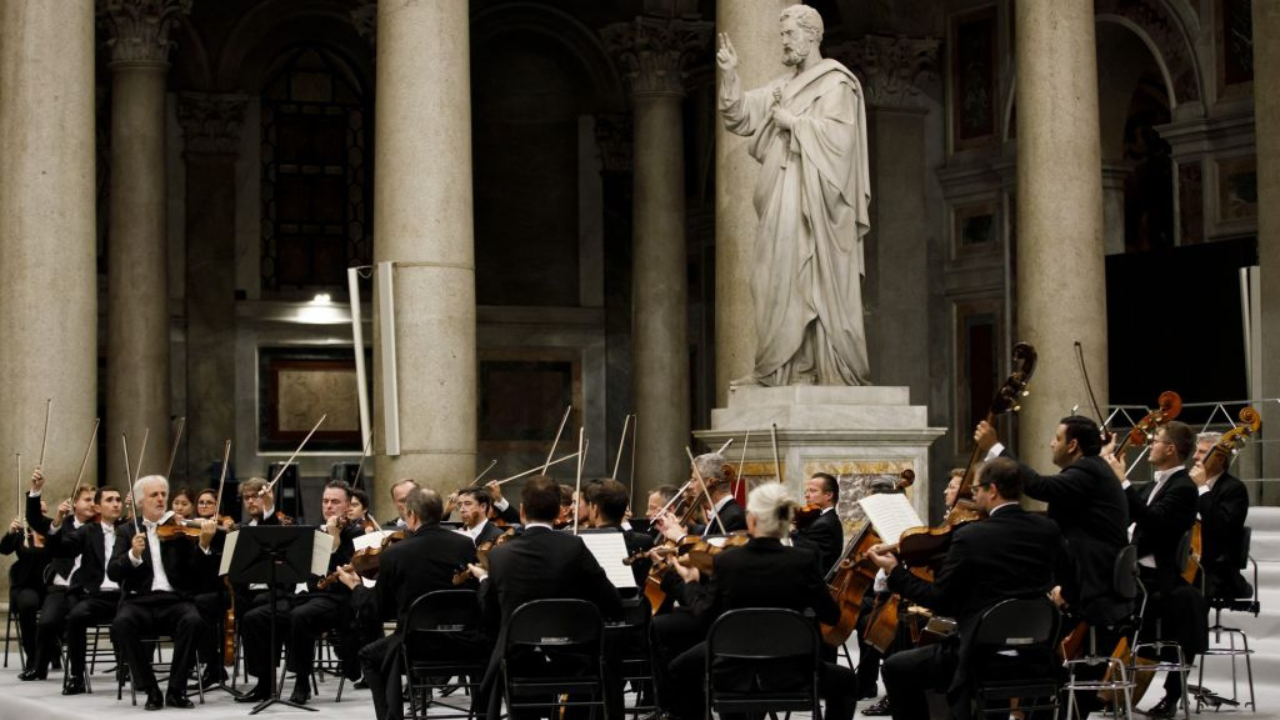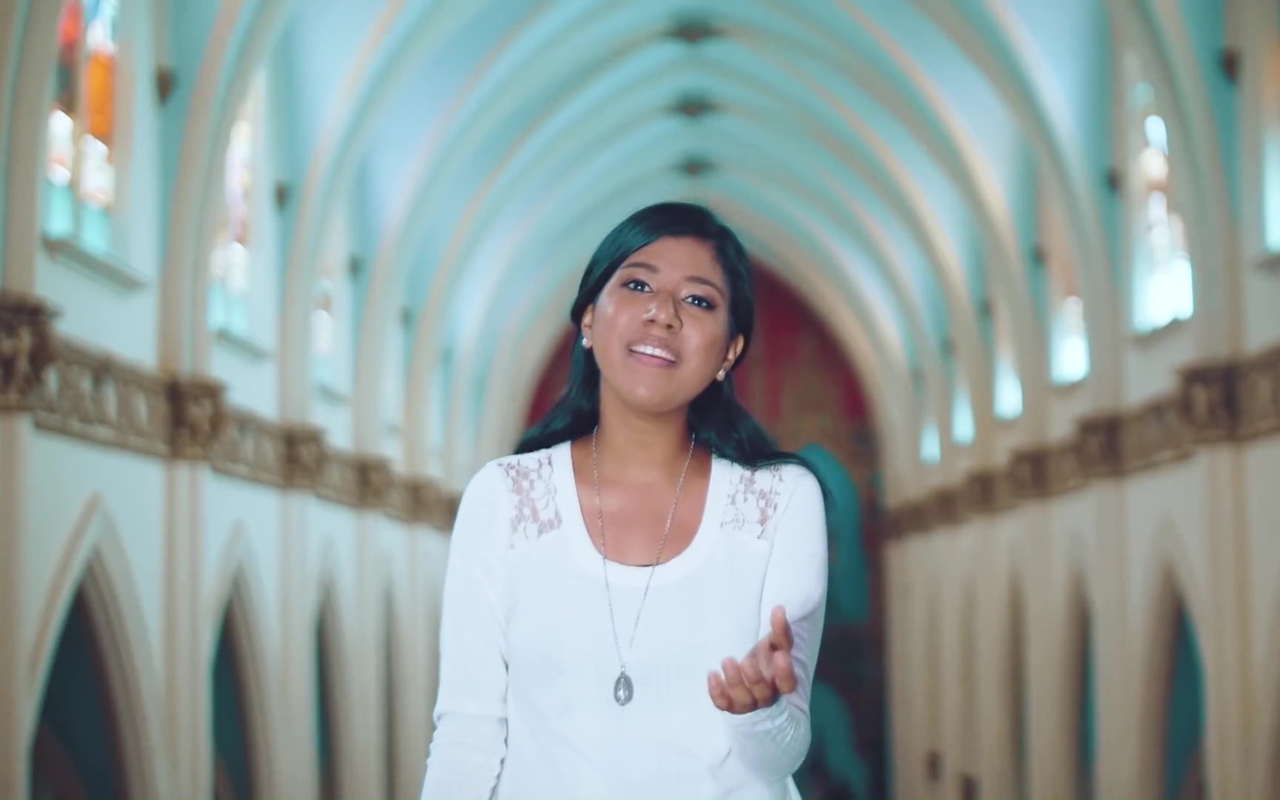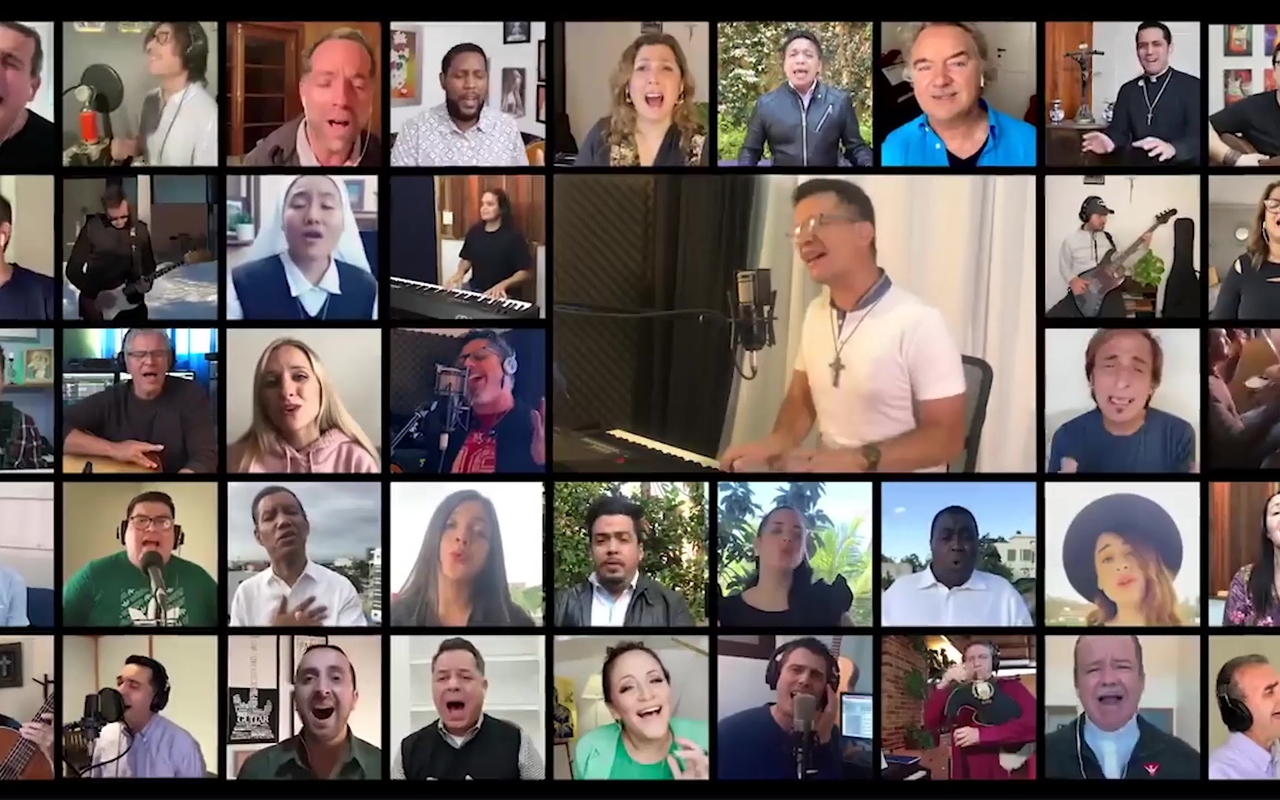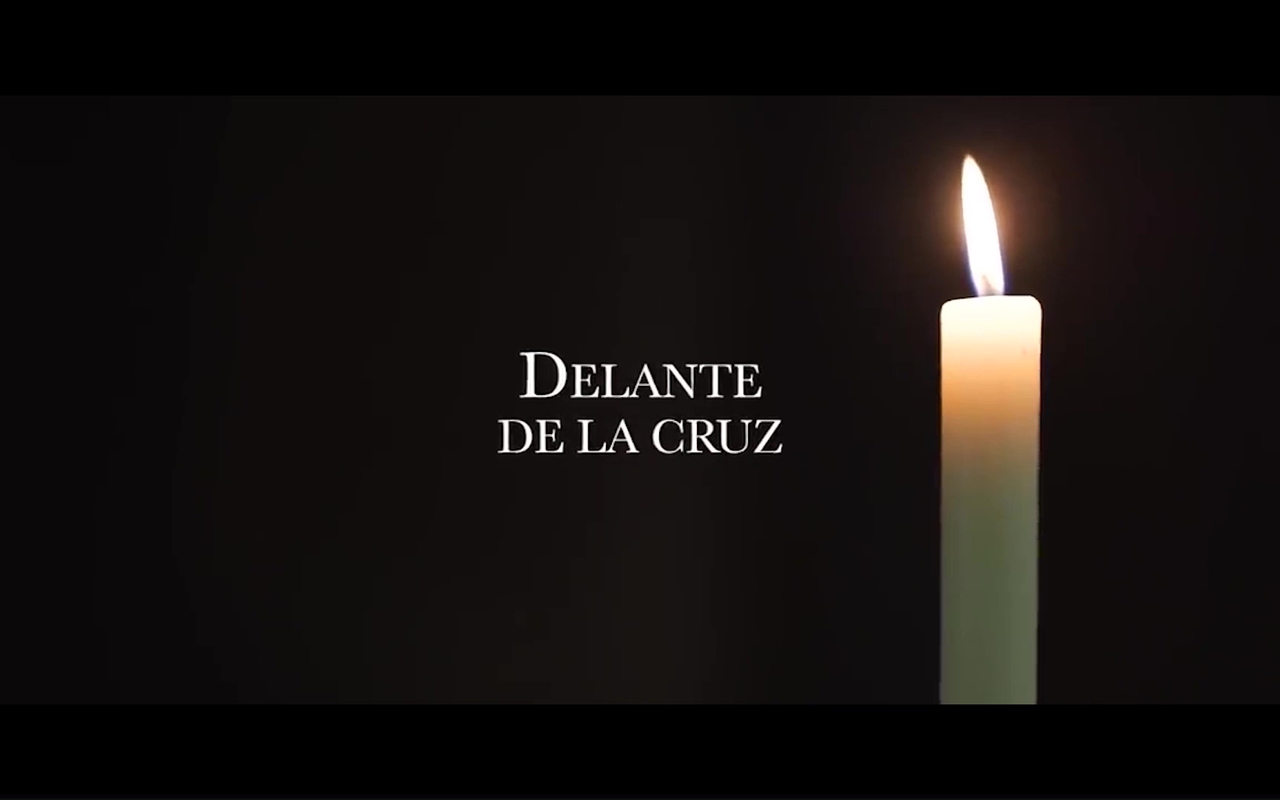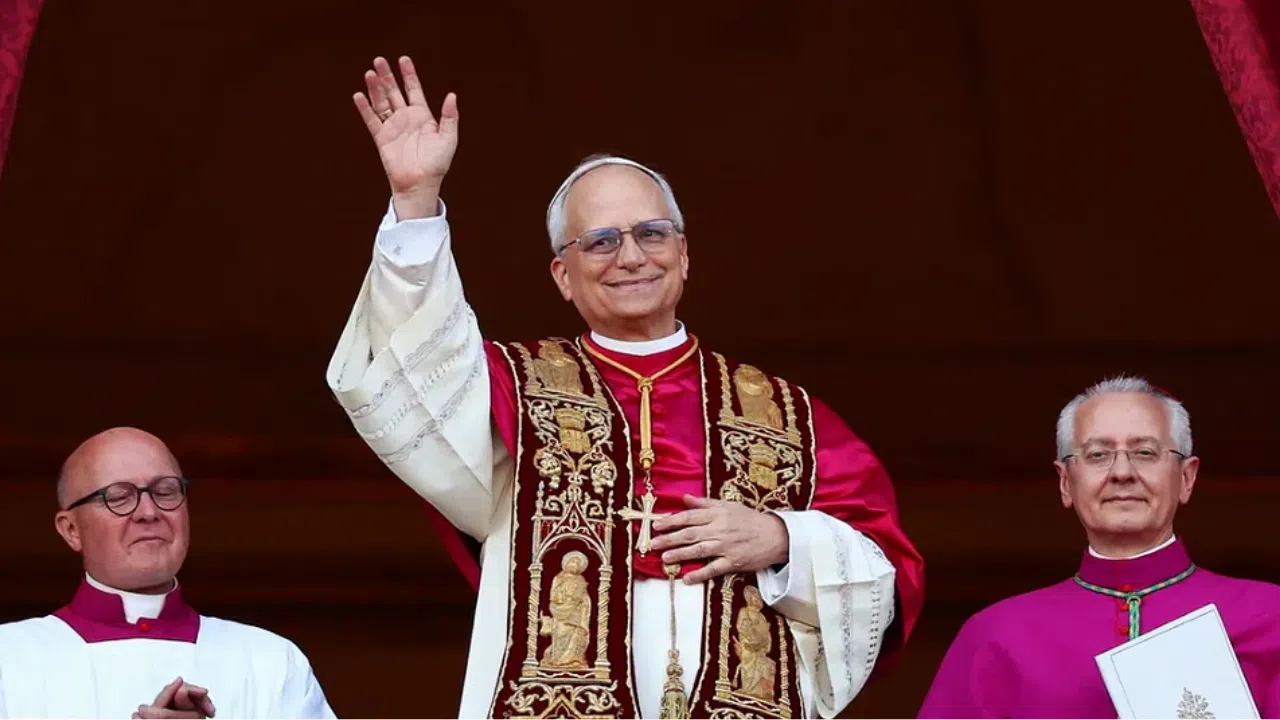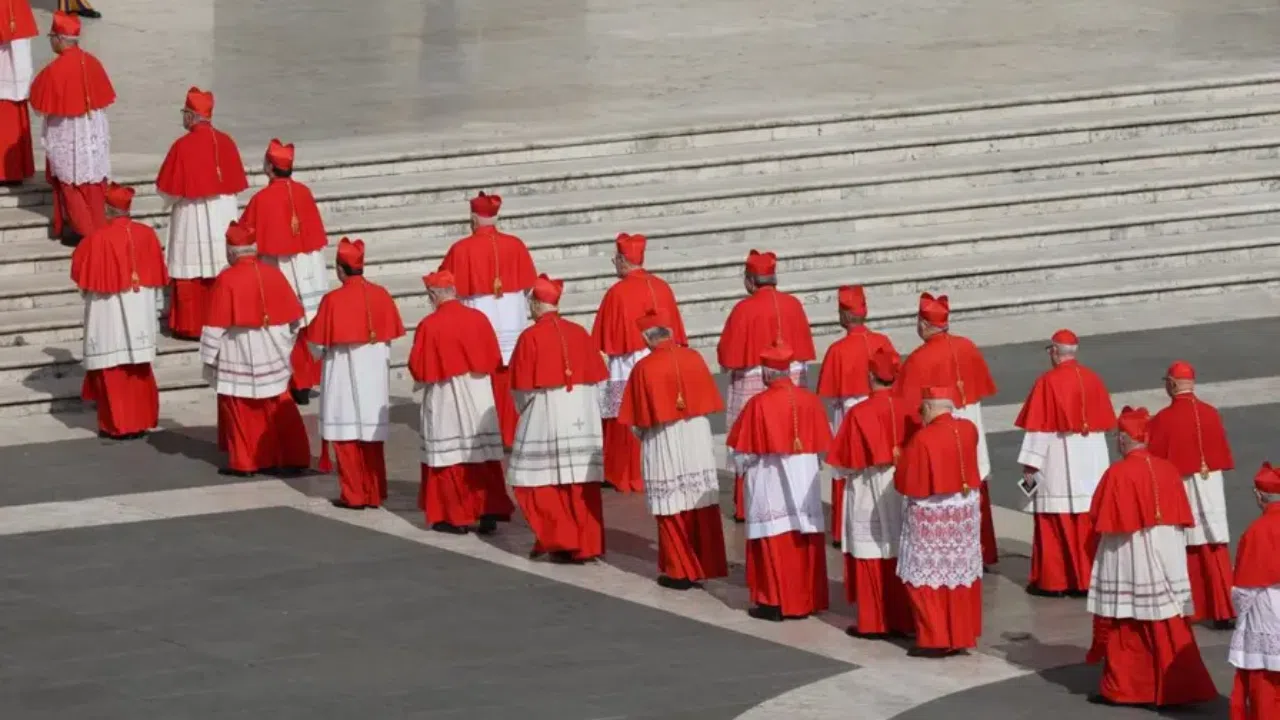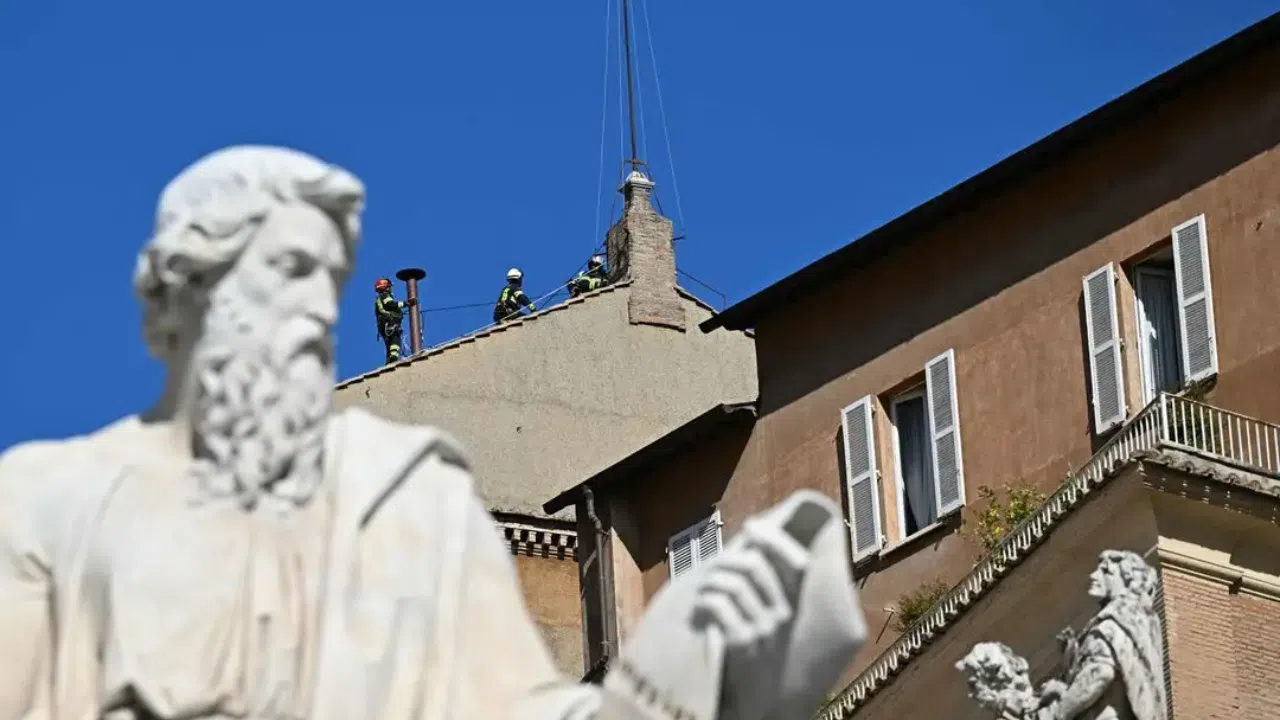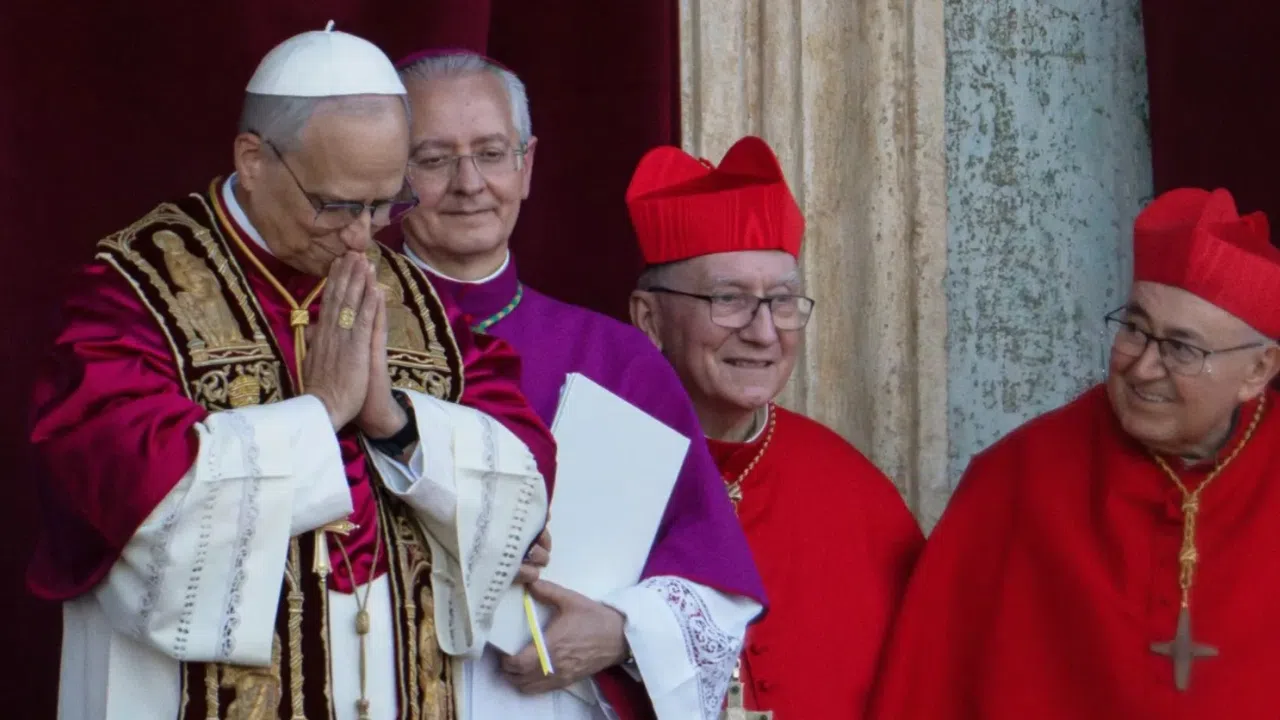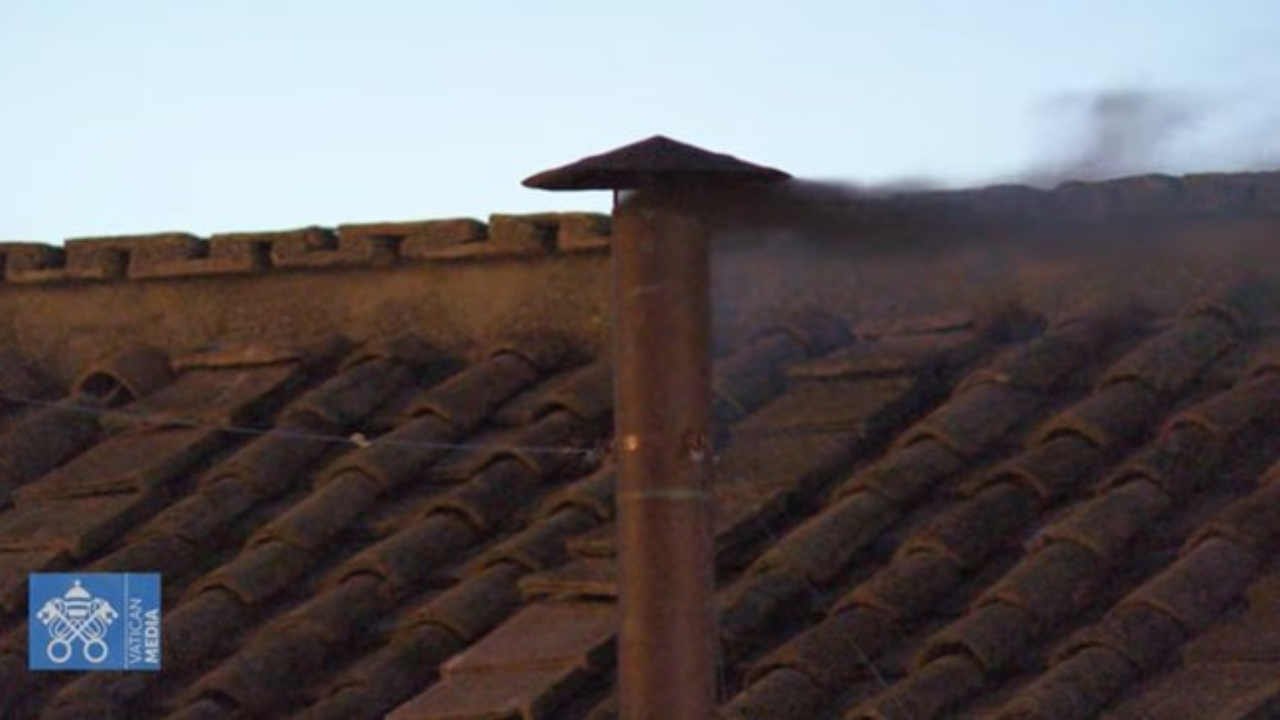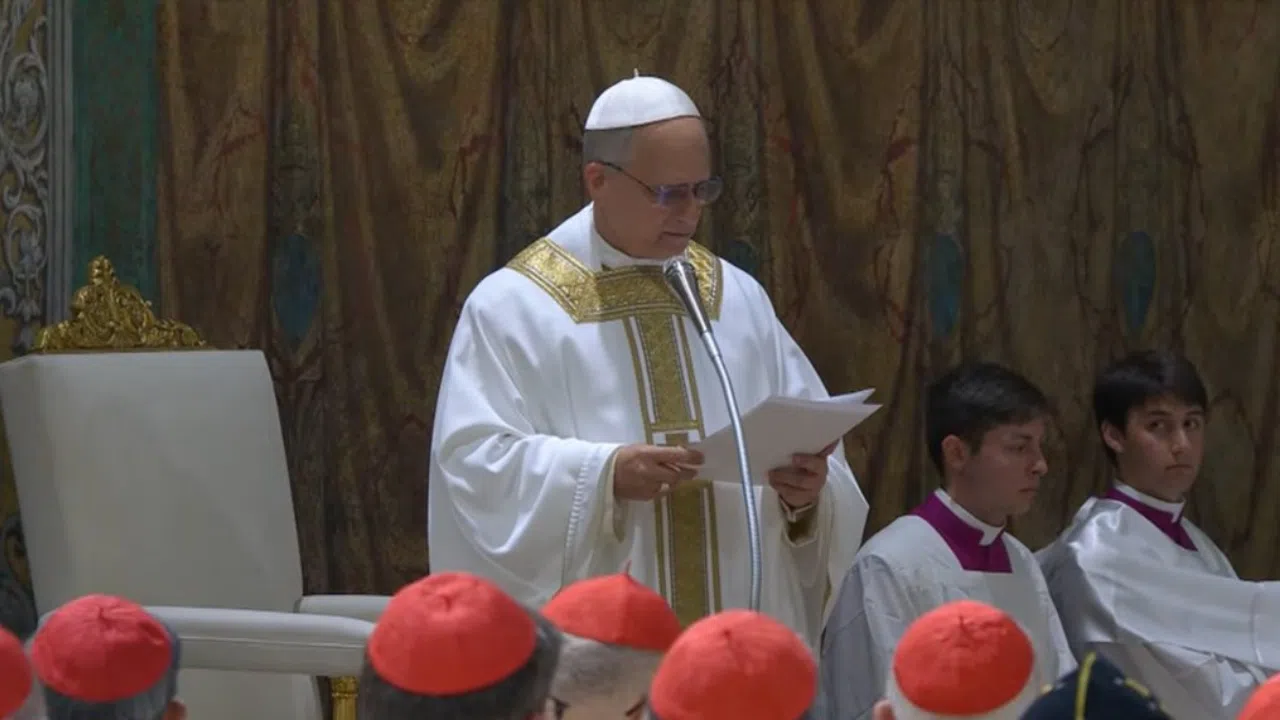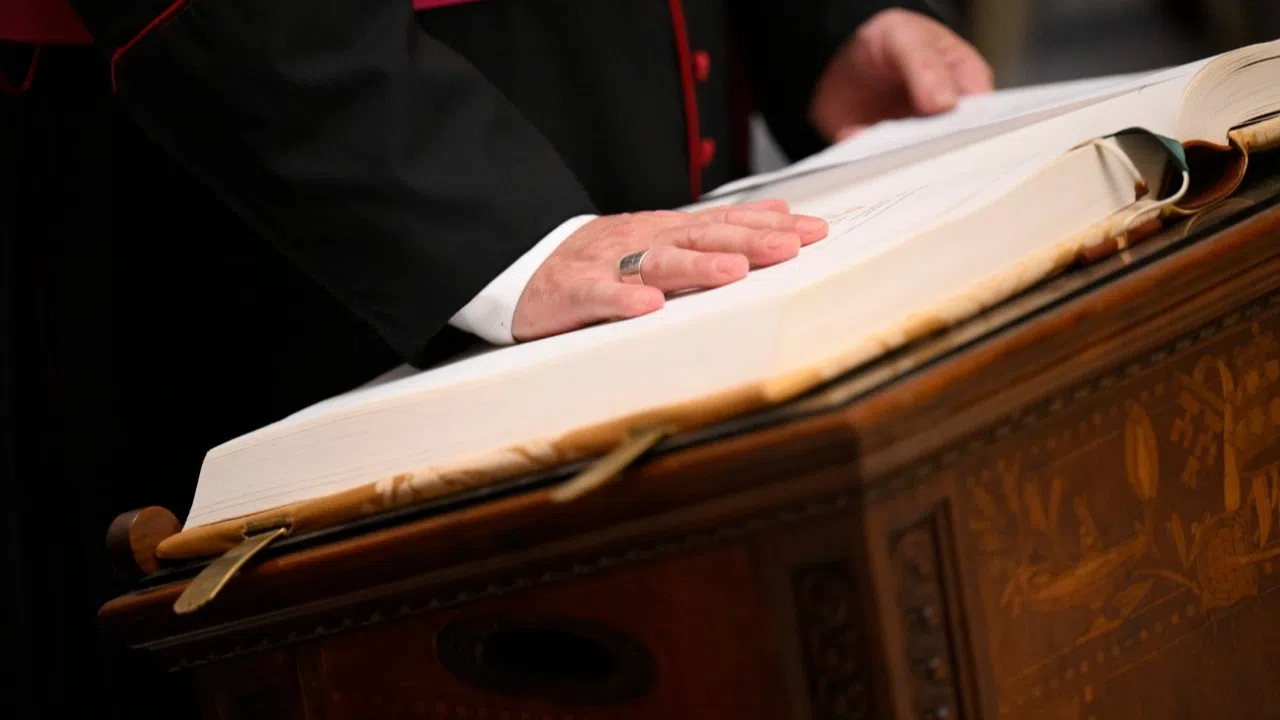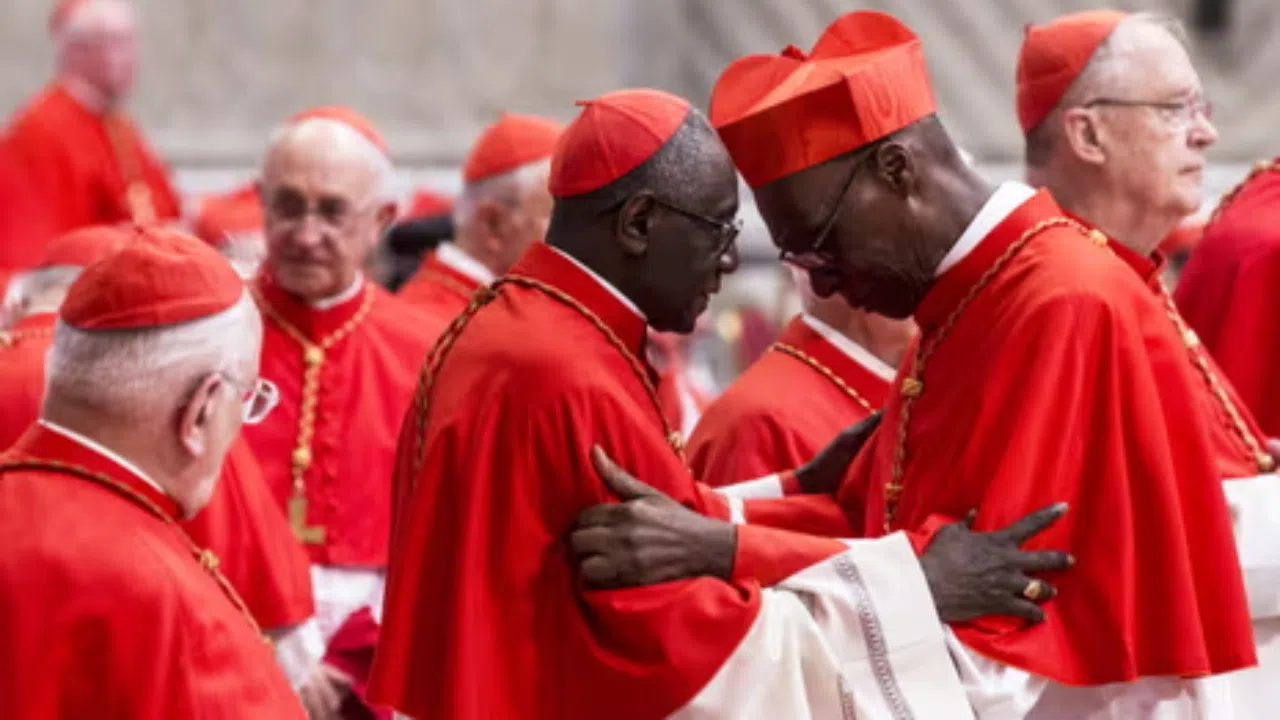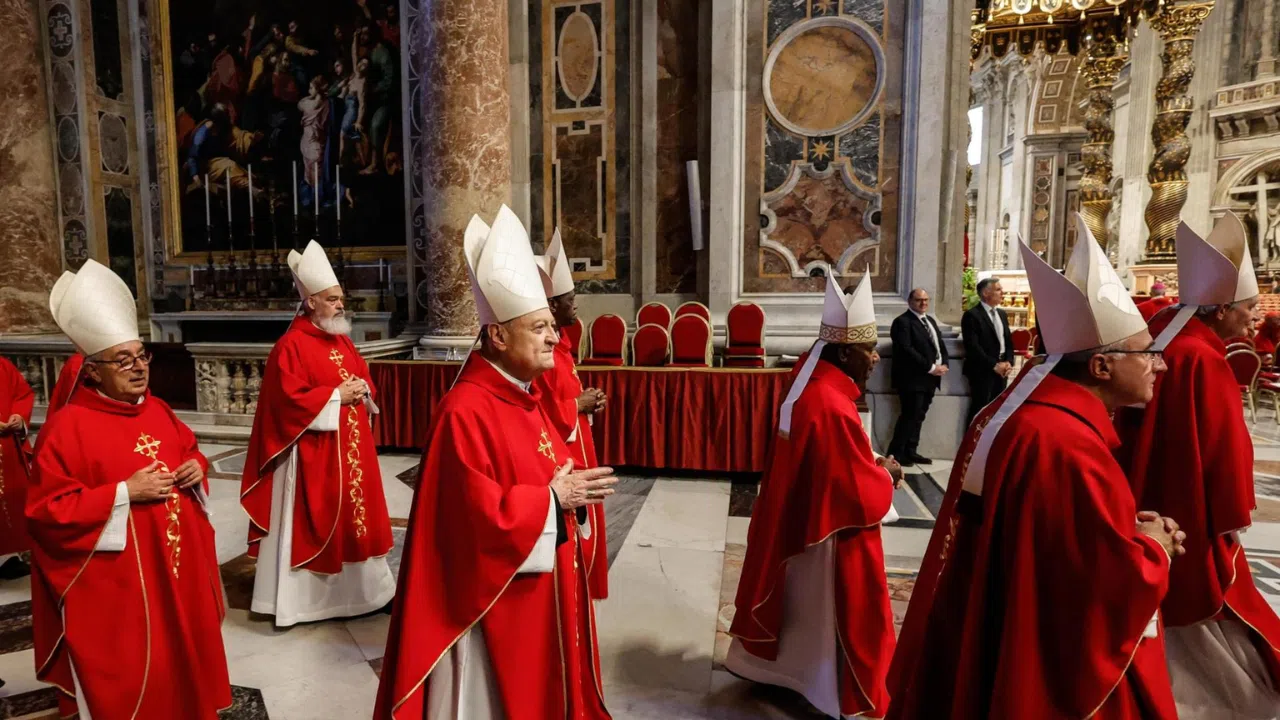The “Graduale Polyphonicum” is a collection of liturgical texts set to original music. The book also includes theological explanations of the parts of the liturgy.
The idea for the project came about when its authors noticed a loss of the sacred music tradition at Mass.
ROCCO SALEMME
Co-author, Graduale Polyphonicum
“Within the liturgy there is a continuing loss of reference to these texts which have been compiled, composed, thought out and structured to accompany the faithful throughout the entire liturgical year.”
“As a result, we chose to opt for an Italian translation of all the texts, a transcription from the four-line staff to the pentagram and finally, a polyphonic rendition of all the pieces.”
ALESSANDRO BACCHIEGA
Composer, Graduale Polyphonicum
“The text is there, and it comes from the liturgy. It's been given to us over the centuries. There is also the Gregorian music. Now, I can choose to compose freely, following my own inspiration from the given Latin or Italian text. Or I can choose to base my composition on the Gregorian chant.”
The hope is that this combination of traditional and new music will help even young people appreciate the richness of sacred music.
ROCCO SALEMME
Co-author, Graduale Polyphonicum
“We often reduce beauty in order to reach young people. However, someone who spends eight hours a day with the youth will tell you that young people have a desire to rediscover that which is beautiful.”
ALESSANDRO BACCHIEGA
Composer, Graduale Polyphonicum
“Even today, there are infinite possibilities to do beautiful things for the liturgy, with Latin, with Gregorian chant, with sacred music.”
The “Graduale Polyphonicum” focuses on parts of the Mass whose texts change weekly, for example the opening and offertory hymns, as opposed to fixed texts like the “Kyrie” and “Sanctus.” This gives the musician several options for each Mass celebration.
There are currently two published volumes and others in the works. The goal is to eventually provide music for the entire liturgical year. Perhaps this project can inspire similar initiatives in additional languages.
Claudia Torres

